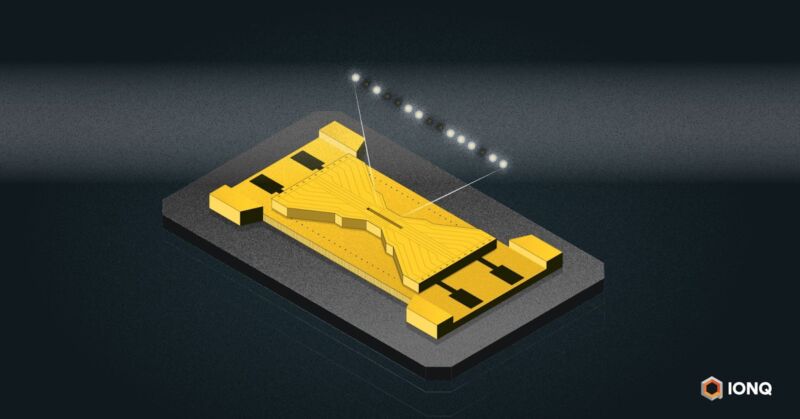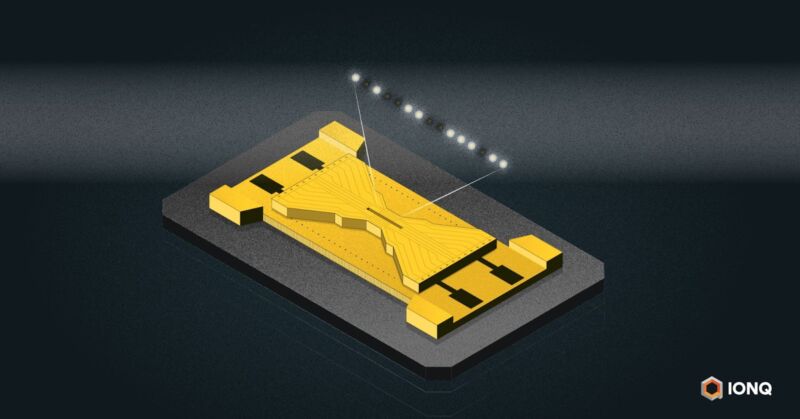
Enlarge / A cartoon diagram of the trapped ion system. (credit: IonQ)
Back in 2020, we talked to the CEO of a quantum computing startup called IonQ that uses trapped ions for its qubits. At the time, the company had just introduced a quantum processor that could host 32 qubits that had impressive fidelity, meaning they were much less likely to produce an error when being manipulated or read out. Best yet, the CEO suggested there was an obvious path to doubling the qubit count every eight months for the next few years.
By that metric, we should be seeing a high-fidelity, 128-qubit machine from the company about now. Instead, it chose to make a significant change to the underlying technology and rethought how it viewed scaling its processors. To find out what motivated the changes, we talked with the company’s CTO, Duke University’s Jungsang Kim, about the decision and where IonQ’s hardware stands in the larger landscape.
If you’re interested in IonQ’s hardware in particular, the next two sections are for you; if you care about the state of the quantum computing landscape more generally, you can skip ahead past those sections.





